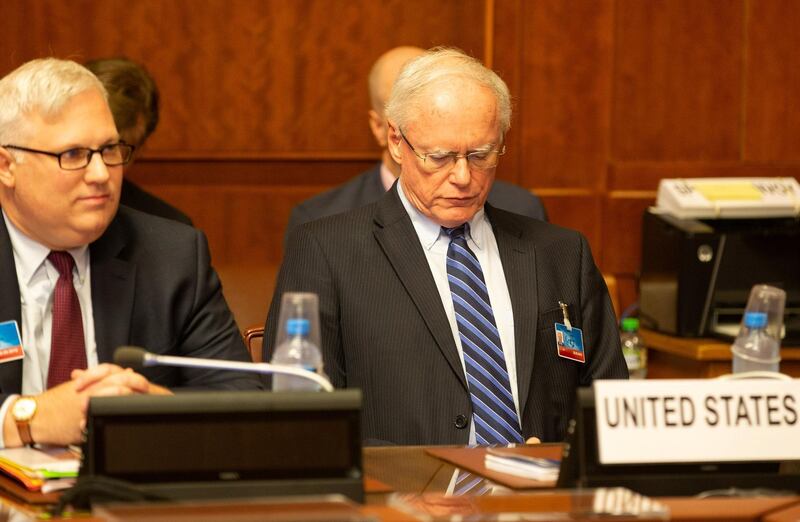The United States said on Monday it was no longer seeking to topple Syrian President Bashar Assad, as Iranian Foreign Minister Javad Zarif said he hoped to reach an agreement on Tuesday with Russia and Turkey on the composition of a new Constitutional Committee in Syria.
"We want to see a regime that is fundamentally different. It's not regime change -- we're not trying to get rid of Assad," James Jeffrey, the US special representative in Syria, said at the Atlantic Council, a Washington think tank.
He warned that the West would abstain from funding reconstruction efforts unless the Syrian government changes course.
"There is a strong readiness on the part of Western nations not to ante up money for that disaster unless we have some kind of idea that the government is ready to compromise and thus not create yet another horror in the years ahead," he said.
He acknowledged, however, that the US may not find an ally anytime soon in Syria.
"It doesn't have to be a regime that we Americans would embrace as, say, qualifying to join the European Union if the European Union would take Middle Eastern countries."
Meanwhile in Geneva, the foreign ministers of Russia, Turkey and Iran met with UN Special Envoy Staffan de Mistura on Tuesday in an attempt to reach an agreement on the composition of a Syria committee that could pave the way for the drafting of a new constitution and for elections after a devastating civil war.
Attempts to establish a 150-member committee comprising of representatives of the government, opposition and civil society have floundered since the plan was first announced at the end of a Russian-sponsored Syria summit in January.
The main sticking point has been the Syrian government's rejection of a list of 50 individuals, including experts, civil society representatives, independents, tribal leaders and women, proposed by the UN to serve on the committee.
Damascus has maintained its view that constitutional reform is an internal matter, ruling out any role for the UN and its suggested candidates in the process of drafting a new constitution.
_______________
Read more:
ISIS entering 'end days' as SDF takes last town
US warns Turkey against unilateral military action in Syria
Hundreds of bodies found in mass graves near ISIS’s former Syrian stronghold
UN: ISIS carrying out executions in east Syria
______________
In an attempt to solve the problem, Russia, Turkey and Iran are coming with a proposal for the third list, which has been the heart of the problem, according to Reuters.
Arriving at the UN, Mr Zarif expressed hopes that the three states would be able to seal their joint proposal and secure UN blessings for it.
Syrian Foreign Minister Walid Al Moualem, in comments reported by state media on Monday, said it was "early to talk about" the constitutional committee starting work. He blamed attempts at "interference" by Western states for the hold-up in its formation, in addition to "obstacles" laid by Turkey.
Syrian authorities have only ever signalled a readiness for "amendments" to the existing constitution and also said these must be put to a referendum.
Mr De Mistura said at the weekend that the constitutional committee could be a starting point for political progress.
"It does touch, for instance, on presidential powers, it could and should be touching on how elections are done, on division of power, in other words a big issue," he said.






